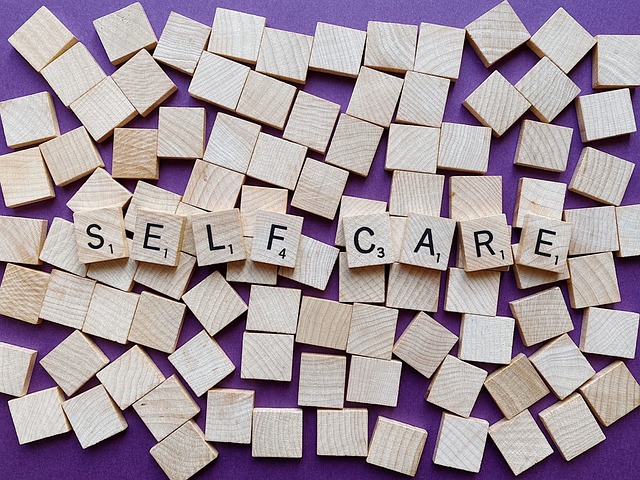The Importance of Mental Health in Personal Development
Mental health plays an integral role in personal development. In a world that often prioritizes physical achievements over emotional well-being, recognizing the significance of mental health is crucial. Think about it: how can we thrive, pursue our goals, and develop into our best selves if our minds are weighed down by stress, anxiety, or unresolved issues? This deep dive into mental health and personal development will provide insights into how maintaining good mental health can pave the way for greater self-awareness and self-improvement.
To start, let’s define mental health. It encompasses our emotional, psychological, and social wellbeing. It affects how we think, feel, and act daily. Good mental health is essential not just at the level of individual happiness but also in cultivating relationships, managing stress, and making decisions. Thus, when we neglect our mental health, we also hinder our personal development. Recognizing this connection is the first step towards approaching self-improvement holistically.
Now, if we visualize personal development as a journey, mental health becomes the foundation upon which we build. Imagine trying to climb a mountain without solid ground beneath your feet. That sense of instability can lead to failure and frustration. Thus, prioritizing mental health allows us to create a stable base. It helps us understand our values, set clear goals, and face challenges with resilience. Personal development involves growth; however, to grow, we first need to be in a place where we can nurture that growth.
Mental Health and Self-Reflection
Self-reflection forms a crucial element of personal development. This practice involves taking a step back to evaluate our thoughts, actions, and feelings. Engaging in self-reflection can significantly enhance our mental health. It provides a clearer perspective on our experiences. Moreover, it allows us to identify patterns in our behavior and thought processes. This recognition acts as a catalyst for change.
When we regularly reflect on our lives, we become more aware of our emotional states. We can pinpoint what triggers feelings of stress, anxiety, or joy. For example, if we notice that certain environments drain our energy, we can adjust our surroundings. This personalized insight leads to self-care strategies tailored to our needs. Furthermore, reflection fosters gratitude. Identifying what we appreciate in our lives can shift our focus from negativity to positivity. This positive outlook directly influences our mental health and enables our personal development journey to flourish.
A powerful technique for incorporating self-reflection into daily life is through journaling. Writing down thoughts can create clarity. It can also be an emotional outlet. Moreover, journaling has been shown to reduce anxiety levels. A simple daily write-up about our feelings can be incredibly therapeutic. Therefore, consistently practicing self-reflection amplifies our self-awareness, ultimately propelling our personal development to new heights.
Resilience as a Mental Health Component
Resilience stands out as one of the key components of mental health. It refers to our ability to bounce back from adversity. Building resilience equips us with the necessary tools to face life’s challenges head-on. It’s not just about surviving difficult experiences; it’s about thriving in their aftermath. Resilience is essential for personal development because setbacks are inevitable in any growth journey.
People often misconstrue resilience as a trait that one either possesses or does not. The truth is, resilience can be cultivated and strengthened over time. Strategies for developing resilience include fostering a positive self-talk, setting realistic goals, and embracing change as a necessary part of life. Everyone experiences challenges, but resilient individuals view these adversities as opportunities for growth.
Support systems also play a crucial role in resilience. Cultivating healthy relationships contributes significantly to mental health. When we have people to lean on during tough times, we build a sense of belonging. This sense of community encourages us to persevere. By recognizing that we’re not alone in our struggles, we develop the confidence needed to continue our personal development journey. Overall, resilience empowers us to maintain mental health while pursuing our goals.
The Role of Self-Care
Engaging in self-care is another critical aspect of prioritizing mental health in our personal development journey. While many people might view self-care as an indulgent or selfish activity, it is essential for maintaining our overall well-being. When we choose to invest time in ourselves, we recharge our emotional and physical batteries. This is especially vital in our fast-paced, often overwhelming lives.
Self-care can take many forms, from simple practices like mindfulness and meditation to more proactive strategies, such as setting boundaries or seeking therapy when needed. Establishing a self-care routine allows us to prevent burnout. Think about how often we tend to neglect our own needs in favor of work or other obligations. This neglect can damage our mental health, hindering our personal development. Prioritizing self-care helps us recognize that we deserve to take care of our mental and emotional needs.
Moreover, self-care practices reinforce the connection between mental and physical health. Regular exercise, for example, releases endorphins and reduces stress. Similarly, nutritious meals fuel not just our bodies but also impact our emotional states. Combining these physical aspects with mental health leads us to become more balanced individuals. Balance is crucial. It creates a harmonious environment for personal growth, allowing us to embrace life’s challenges with open arms while nurturing our mental health.
Overcoming Stigma Around Mental Health
Despite the growing awareness surrounding mental health, a stigma still exists. Many individuals shy away from discussing their mental health challenges, fearing judgment or misunderstanding. This stigma acts as an impediment, preventing people from seeking help. If we hope to enhance personal development through mental health, we need to encourage open conversations about it. Sharing experiences and embracing vulnerability can dismantle the barriers surrounding mental health discussions.
Educational initiatives can help in this regard. As individuals become more informed about mental health issues, they develop empathy and understanding. Schools, workplaces, and communities must prioritize mental health education. Establishing platforms for discussion fosters an inclusive environment. It empowers individuals to seek assistance without feeling ashamed. When we normalize conversations around mental health, we create an atmosphere ripe for personal growth.
Additionally, having accessible mental health resources is critical. This includes counseling services, support groups, and crisis hotlines. By promoting these resources, we affirm their importance in both personal development and overall community health. Imagine a world where everyone feels comfortable reaching out for help, fostering personal development in a stronger, healthier manner. We all have the power to contribute to this change, breaking the silence around mental health stigma.
Creativity and Mental Health
Exploring the intersection of creativity and mental health reveals remarkable insights into personal development. Creativity serves as an outlet for emotional expression. Many people find that channeling their feelings into art, writing, or music can be therapeutic. This process not only aid in emotional release but also promotes introspection. Engaging in creative activities boosts mental health by sparking joy. Moreover, these expressions of creativity can lead to personal revelations that catalyze our growth.
Art-based therapies have gained traction, and they illustrate how creativity impacts our mental well-being. These therapies encourage individuals to explore their emotions through various mediums. Color choices, artistic forms, and storytelling all offer deeper self-understanding. By utilizing creativity as a form of self-exploration, we nurture a healthier mental state that directly contributes to our personal development.
Furthermore, celebrating small wins in creative endeavors builds self-confidence. Completing a painting, writing a poem, or even successfully trying a new recipe can reinforce a positive self-image. These achievements, no matter how small, remind us of our capabilities. As we foster that sense of accomplishment, we encourage growth in other areas of our lives. Creativity, therefore, becomes a vital component in building resilience, fueling the fire for ongoing personal development.
Conclusion
As we explore mental health further, recognizing its impact on personal development proves essential. Whether through self-reflection, building resilience, engaging in self-care, or nurturing creativity, a strong focus on mental health enables us to flourish as individuals. The journey of personal development is multi-faceted, requiring us to attend to our emotional well-being. By fostering a culture of openness surrounding mental health, we can support each other through the challenges we face. Ultimately, prioritizing mental health allows us to grow, learn, and achieve our fullest potential.
FAQs
1. Why is mental health important for personal development?
Mental health profoundly affects our ability to understand ourselves, manage stress, and face challenges. It lays the foundation for growth, self-awareness, and resilience, which are crucial for personal development.
2. How does self-reflection impact mental health?
Self-reflection helps individuals evaluate their thoughts and feelings. This awareness promotes emotional clarity, reduces anxiety, and fosters personal growth by identifying areas for improvement.
3. What are some effective self-care strategies?
Effective self-care strategies include regular exercise, mindfulness practices, setting boundaries, journaling, and engaging in hobbies. These actions help rejuvenate mental health and enhance overall well-being.
4. How can I overcome the stigma surrounding mental health?
Engaging in open conversations about mental health, educating others, and sharing personal experiences can help break the stigma. Normalize discussing mental health to foster a supportive environment.
5. Can creativity improve mental health?
Absolutely! Engaging in creative activities allows for emotional expression and introspection, boosting mental well-being. It also fosters a sense of achievement and can support personal growth.



